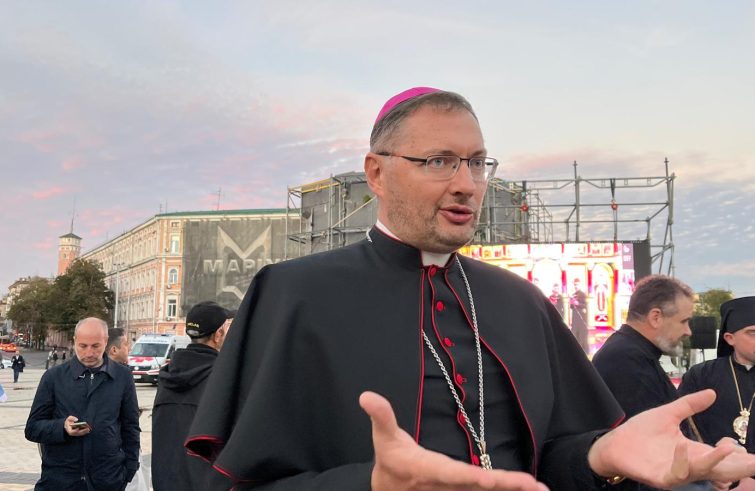
(from Kyiv) “Vicious” attacks like those that hit the paediatric hospital in Kyiv are a call to “consciences”: “The war must be stopped”. Archbishop Visvaldas Kulbokas, Apostolic Nuncio to Ukraine, addressed the situation in Ukraine on the sidelines of the prayer for peace held on 11 July in Kyiv’s St. Sophia Square, organised by the European Movement for Nonviolent Action (“MEAN”). SIR interviewed him.

Your Excellency, we are gathered here to invoke peace at this tragic juncture in the city of Kyiv following the attack on the Children’s Hospital. Children were the target of the attack. How can any reasonable person accept such a thing?
Over the past days, during the celebration of the Eucharist, I sought to comprehend the significance of such an attack and I was able to discern an answer to this question. Such brutal acts can serve to jolt the public conscience, compelling an unequivocal rejection of any form of warfare. There can be no explanations, no reasons, and no justifications of any kind. The war must be brought to an end. The aggressor must be stopped.
We welcomed the safe return of two Redemptorist priests who had been captured by Russian forces with joy and relief. Vatican diplomacy has made progress. How is it proceeding?
I continue to pray for them, as the injuries they bear on their bodies are a testament to the atrocities they endured during their captivity. Our thoughts are continually directed towards the thousands of civilians who are currently incarcerated. It is unacceptable that they should still languish in these conditions. Indeed, there remains a considerable amount of work to be done.
What is your overall impression of the situation in the country? War is raging, but the people stand united and hold out.
I heard a person committed to the defence of human rights make a very clear point. He said: “Occupation is not peace”. The people of Ukraine are well aware that subjugation and occupation are not peace. That is why they say they have no other option. So, instead of saying that they are standing united and strong, it should be said that the people of Ukraine have no alternative. The current circumstances are grave. The summer season is underway, yet the government is already urging the citizenry to prepare for the impending winter. At the moment there is no electricity, but in the winter there will be no running water and no central heating. When on top of that come the attacks, the bombings, the rockets, the whole situation becomes tremendously hard.
On 21 July, Cardinal Parolin will arrive in Ukraine. Why did Pope Francis ask him to travel to Ukraine?
He is the Pope’s closest collaborator. The main reason for his visit is prayer. Prayer comes before everything else. Then we will see what is going to be achieved. But he is coming here to pray.
What is Europe’s responsibility today and what should Europe do for the Ukrainian people in the face of these war crimes?
I am at a loss for answers. But I will say this: the stronger our identity as Europeans, both culturally and spiritually, the more we will be united and the more creative and proactive we will be in finding solutions and ways out of this situation. It is not a question of enduring, but of taking the initiative.











